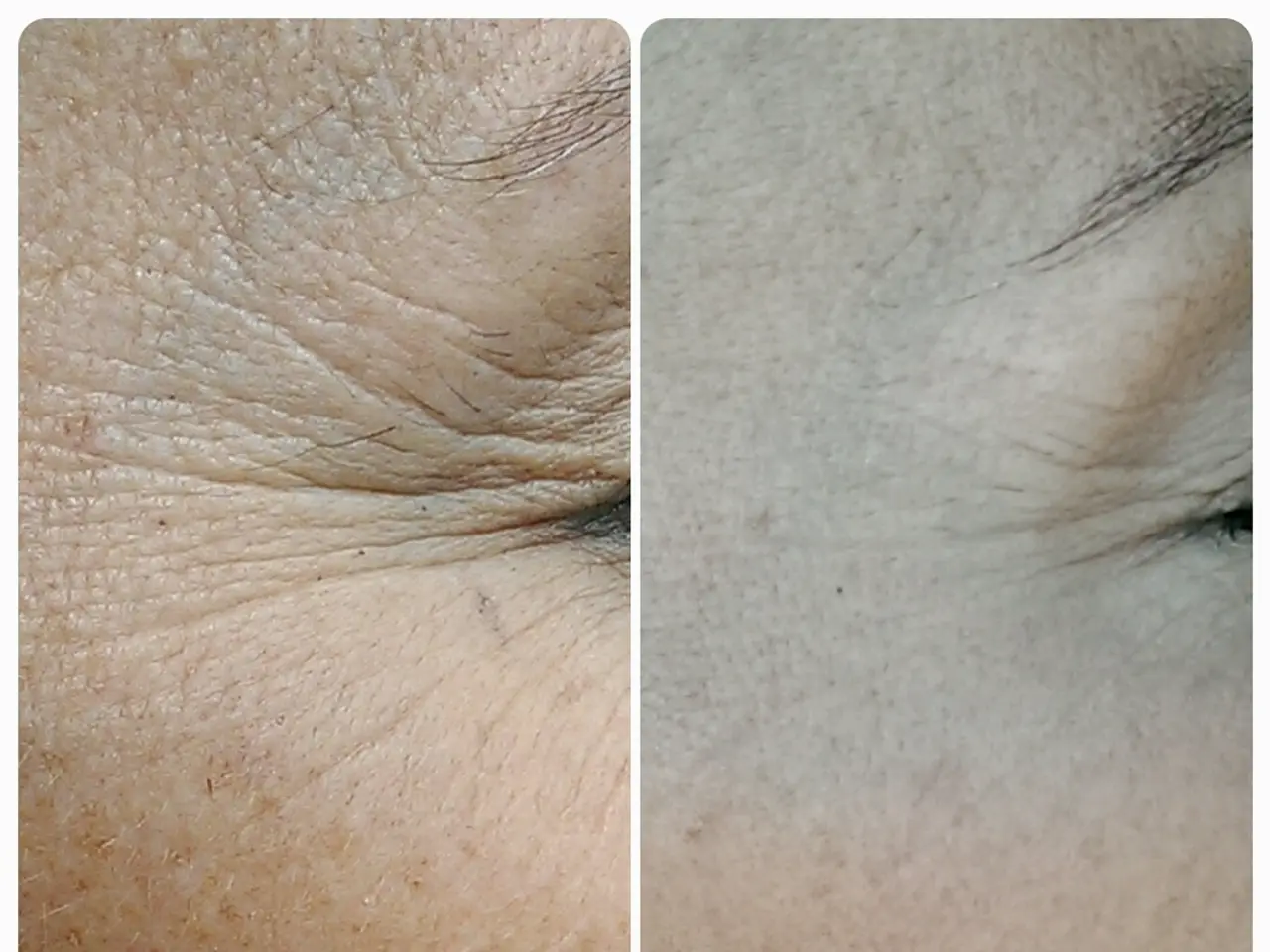Anus Pimple: Characteristics, Remedies, and Additional Information
In the realm of skincare, pimples are a common occurrence. However, when they appear on the anus, it can be challenging to differentiate them from other conditions that may share similar appearances. Here's a breakdown of some conditions that might be mistaken for pimples on the anus and the key differences to look out for.
Firstly, hemorrhoids and skin tags can resemble small bumps or pimples near the anus. Hemorrhoids are lumps of tissue that develop within the anal canal and can cause symptoms such as bleeding, itching, pain, and protrusion of the skin during bowel movements. Skin tags, on the other hand, are small, soft growths that hang from the skin and are often caused by friction or irritation.
Anal warts, caused by the human papillomavirus (HPV), are another condition that can be confused with pimples. These warts may appear as single bumps or clusters resembling cauliflower shapes and can be mistaken for skin tags or pimples. However, they can also cause itching, pain, and bleeding.
Abscesses, such as infected Bartholin cysts in the vulvar area, can resemble pimples, especially when they are superficial and filled with pus. Abscesses tend to have more severe symptoms of infection compared to simple pimples.
Genital herpes and other sexually transmitted infections can cause bumps or ulcers around the anus that might initially be confused for pimples. Herpes sores, for instance, can look like pimples but are usually filled with clear fluid and may ulcerate.
While pimples on the anus can occur due to blocked pores or ingrown hairs, it is important to consider other potential diagnoses, especially if the bumps are persistent, painful, itchy, bleed, or accompanied by other symptoms. Consulting a healthcare provider is advised for proper diagnosis and treatment, since some of these conditions (e.g., HPV warts or abscesses) need specific therapies and monitoring.
It's also worth noting that anal cancer may cause a lump near the anus, pain or pressure in the area around the anus, itching or discharge from the anus, bleeding from the anus, and a change in bowel movements. If you notice any of these symptoms, it's crucial to seek medical advice immediately.
Lastly, a pilonidal cyst is an infection of the hair follicles in the crease of the buttocks near the tailbone. This condition may cause symptoms such as pain, swelling, and irritation of the perianal skin.
In conclusion, while pimples on the anus can occur, it's essential to be aware of other possible conditions that might present similarly. If you're unsure about a growth on your anus, it's always best to consult a healthcare provider for a proper diagnosis.
- The appearance of pimples on the anus can often be misconstrued with conditions like dermatitis, eczema, or atopic eczema, as they also manifest as skin irritations.
- Hepatitis, a medical-condition related to liver inflammation, may have symptoms that share similarities with digestive issues, potentially causing discomfort around the anus.
- In the realm of health-and-wellness, obesity, characterized by excessive body fat, can lead to certain skin conditions in the anus due to pressure and irritation from excessive weight.
- When it comes to mental health, conditions such as depression, bipolar, or migraines can cause physical symptoms like anal pain or discomfort, albeit indirectly.
- In the domain of certain types of cancer, anal cancer, for instance, can exhibit symptoms near the anus that may mimic pimples.
- COPD, a progressive lung disease, may not present symptoms around the anus directly, but it can affect overall health and wellness, making individuals more susceptible to various conditions, including those around the anus.
- Type 2 diabetes, a metabolic disorder, can have systemic effects that lead to skin-care issues, including those around the anus.
- Asthma, a chronic lung condition, while primarily affecting the respiratory system, can lead to general irritation, which may inadvertently affect the skin in certain areas like the anus.
- Though uncommon, some forms of HIV may also cause skin-related symptoms affecting the anus, as part of a constellation of symptoms related to the illness.
- Predictive models in science can attempt to identify risk factors for various conditions, including those related to skin-care, to help prevent complications and ensure proper health-and-wellness.




